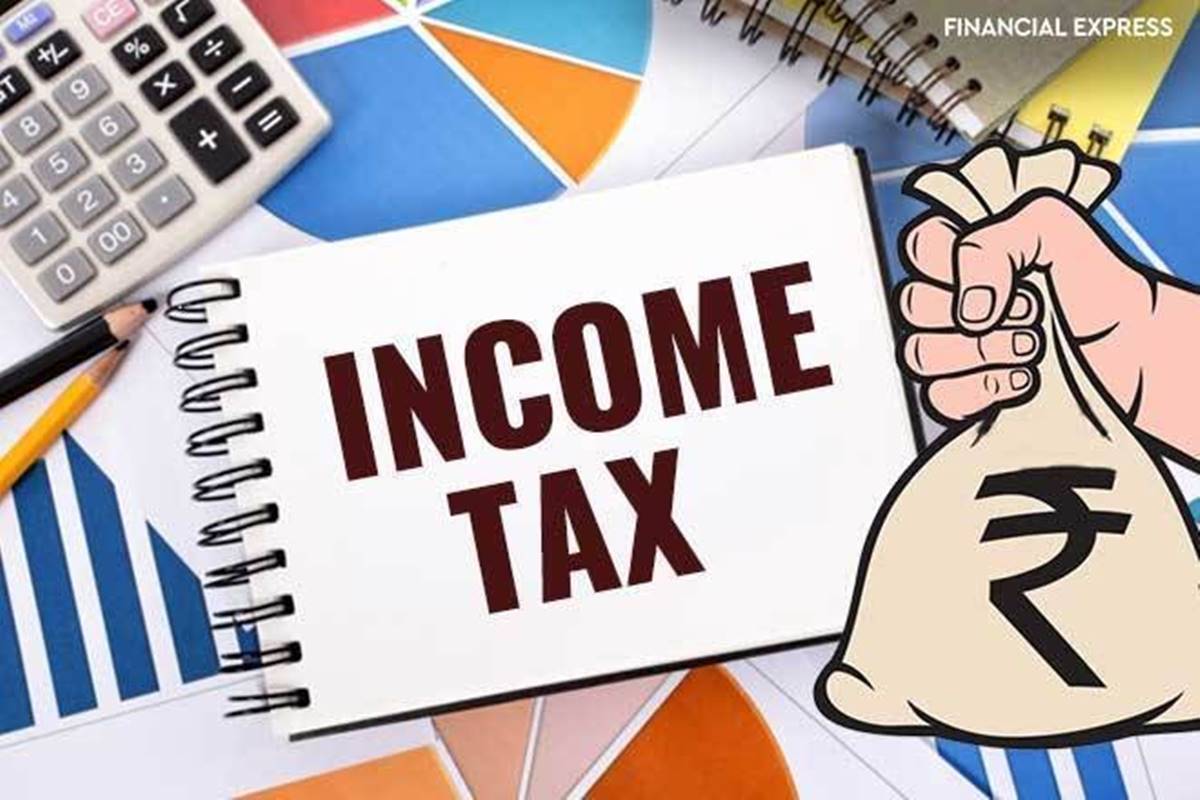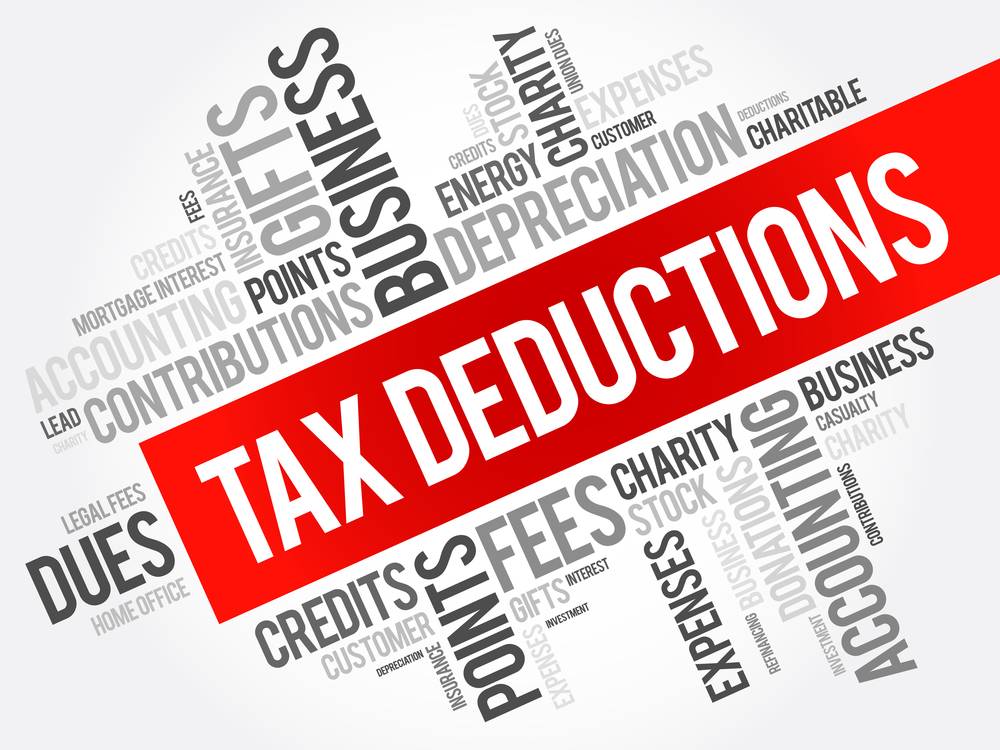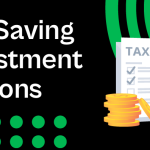
Taxation is not a new concept but can be traced back to ancient India. Arthashastra and other books are the references of the concept of taxation. This is one of the ways how kings and monarchs used to administer their provinces during their reign.
Today, India is a democracy. It is not ruled by a King but administered by an elected government. Citizens of India pay tax to the government, which is utilised by the authorities to perform various tasks for the development of the country. It is the duty of every law-abiding citizen to pay income tax and contribute towards the country’s betterment. Here we are giving detail knowledge about the Indian taxation system, income tax deductions, slabs, IT returns, e-filing, etc.
What is Income Tax?
If you are living in a country, it is natural that you will work there to earn a living. This means you will earn an income. Out of that income, you are required to pay a certain portion to the government of the country as income tax. An Indian citizen must pay tax directly to the Government of India.
Primarily, income tax can be of two types – direct and indirect. As the name suggests, direct tax is paid directly to the government by you on your income or profit. Tax deducted directly through your salary is an example of direct tax.
Indirect tax is a tax which is given to the government indirectly by you. This means indirect tax is collected by a third party on your behalf and then given to the government. Example of an indirect tax is Goods and Services Tax which is applicable on movie tickets, restaurants, etc.
Government collects income tax as per the provisions of the Income Tax Act, 1961. Over the years, the act has been amended to meet the requirements. The Income Tax Act was the first for independent India. Previously, the people had faced taxation by the British rulers. Taxation was, and will be one of the important means for the government to ensure the machinery is well-oiled and functional. For example, tax collected by the people is used for infrastructure, development, and defence endeavours.
Income Tax Deductions:

As per the Income Tax Act, there are some deductions that can help you to save tax. You can invest money as per these deductions and achieve the dual objective of making investments as well as save tax. Here’s a list of some of the different deductions.
Section 80C – You have the option of investing Rs. 1.5 lakhs under the options mentioned in this section. Some of the popular options that people opt for in this section are Unit Linked Insurance Plan (ULIP), Tax-saving Fixed Deposits, and Public Provident Fund, Etc.
Section 80D – This section is all about encouraging people to purchase health insurance policies. You can benefit from this section by paying health insurance premium for you, your spouse, and your parents as well. Not just health plans, money spent for preventive health check-ups can also be eligible for tax deductions.
Section 80DD – If a person’s family member is diagnosed with a disability (note that the disability should be more than 40%) then the person can be eligible for deduction.
Section 80DDB – Deductions are on the basis of expenses made for treating specified diseases faced by the dependent.
Section 80E – Deduction on the basis of repayment of education loan.
Section 80EE – Maximum deductions of Rs. 50000 related to interest on loan payable for buying residential house property.
Section 80G – This section is dedicated towards money spent on making donations to registered organizations.
Section 80CCD(1B) – This type of investment is for pension fund. It has a maximum limit of Rs. 50000 for investing money in the National Pension Scheme.
Section 80CCD(2) – Contribution towards National Pension Scheme by employer. The investment limit for this is 10% of basic salary and dearness allowance.
Section 80GG – Rent paid in case of HRA not received.
Section 80TTA – Interest generated on money in savings accounts in banks and post offices.
Section 80TTB – Interest generated on different kinds of deposits in banks and post offices.
Income Tax Slabs:

It would be unfair to tax a low-earning person the same way a high-earning person is taxed. This is where income tax slabs come in the picture. These are tables stated by the authorities which help people to understand how much tax they are liable to pay as per their age and income. Have a look at the following income tax slabs for FY 2019-20.
Income Tax Slab Rates for people less than 60 Years (FY 2019-20):
| Income Tax Slabs | Income Tax Rates |
| Up to Rs. 2.5 lakh | Nil |
| Rs. 2.5 lakh to Rs.5 lakh | 5% on income more than Rs. 2.5 lakh + 4% cess |
| Rs. 5 lakh to Rs.10 lakh | Rs. 12,500 + 30% on income more than Rs. 5 lakh + 4% cess |
| Rs. 10 lakh and above | Rs. 1,12,500 + 30% on income more than Rs. 5 lakh + 4% cess |
Income Tax Slab Rates for people in the age group of 60 and 80 (FY 2019-20):
| Income Tax Slabs | Income Tax Rates |
| Up to Rs. 3 lakh | No Income Tax |
| Rs. 3 lakh to Rs. 5 lakh | 5% on income more than Rs. 3 lakh + 4% cess |
| Rs. 5 lakh to Rs. 10 lakh | Rs. 10,000 + 20% on income more than Rs. 5 lakh) + 4% cess |
| Rs. 10 lakh and above | Rs. 1,10,000 + 30% on income more than Rs. 10 lakh + 4% cess |
Income Tax Slab Rates for people above 80 Years of Age (FY 2019-20):
| Income Tax Slabs | Income Tax Rates |
| Up to Rs. 5 lakh | No Income Tax |
| Rs. 5 lakh to Rs. 10 lakh | 20% on income more than Rs. 5 lakh + 4% cess |
| Rs. 10 lakh and above | Rs. 1,00,000 + 30% on income more than Rs. 10 lakh 4% cess. |
Income Tax Rules:
On the surface, income tax rules and income tax act might come across as replaceable terms. But they are not. They are different terms and have different implications. Income Tax Rules, 1962 came into existence to apply the law stated in The Income Tax Act, 1961. Income Tax Rules exist within The Income Tax Act’s framework and meant to be read in conjunction.
What is the meaning of Income Tax Returns (ITR)?
Income Tax Returns or IT return as it is popularly known is a form which is used to convey to the authorities the tax you have paid. Even if you fall under a category where you do not have to pay tax, you still must file ITR just to show that you are not eligible. If your income is more than the tax limit, it is mandatory to file ITR. Failing to do so can lead to fines.
Income Tax Return Form:
In case you are wondering which form you should pick to pay ITR, here’s a handy list.
ITR 1 – For those who have salaried income, income generated from property or other sources such as interest on money deposited.
ITR 2 – For a person and Hindu Undivided Family who do not have income generated from a business or a profession.
ITR 2A – For a person and Hindu Undivided Family who do not have income generated from a business, profession and Capital Gains. And they do not have any international assets.
ITR 3 – For a person and Hindu Undivided Family who are a partner in a firm and do not carry out business or involved in a profession as per any proprietorship.
ITR 4 – For a person and Hindu Undivided Family who have income generated from a proprietary business or profession.
ITR 4S – Business income tax return (presumptive).
ITR 5 – This is for people except an individual, Hindu Undivided Family, company, and the person who has filled Form ITR 7.
ITR 6 – Companies which have not claimed exemption under section 11.
ITR 7 – For those who have to furnish returns under the sections mentioned here: 139(4A) or 139(4B) or 139(4C) or 139(4D) or 139(4E) or 139(4F)
ITR V – This is an acknowledgement form for filing income tax return.
Filing Income Tax Return:
Filing income tax returns is an annual affair. you will need Form 16 and documents that can act as proof that you have made investments in the assessment year. You can file income tax returns yourself or take the help of professionals such as Chartered Accountants or Financial Advisors.
E-filing Income Tax Returns:
You have to visit the Income Tax official website https://incometaxindiaefiling.gov.in and follow the steps given to compute the returns. It is suggested to keep all the documents handy and then begin the filing process for smooth execution.
Advantages of Filing Income Tax Returns:
Here are some prominent benefits of filing income tax returns in a timely manner.
Swift processing of loans:
Loan processing is based on the applicant’s credibility. Filing income tax returns makes it easy for financial institutions to find out about a person’s credibility.
Visa:
Certain foreign countries have made it a part of their VISA-giving process to check the applicant’s income tax returns. Without filing, you might not be allowed to travel to that country.
Business Accounting:
Businesses are all about profits and losses. When you face a business loss, you need to carry forward the losses in the accounts. This can be done only when income tax returns are filed.
Refund of Tax:
You can avail tax refund only after filing income tax returns.
Applying for Passport:
The process of passport application becomes easier when you have filed income tax returns.
Accidental Death Insurance:
Income tax return documents is a crucial document that the court considers valid while settling accidental death insurance cases.
Government Tender:
If you are an entity and want to apply for a government tender, your past income tax returns need to be submitted for the process.
Life cover:
If you are someone who wants to purchase a high-risk insurance cover amounting to Rs. 1 crore, you will have to submit your income tax returns document to the insurance company for assessment.
Claiming Income Tax Refund:
If applicable, you can get income tax refund after filing income tax returns. It is a way of telling the authorities that you had made certain investments which saved you tax. Since the organization where you are working has already deducted tax, you will get the appropriate amount refunded based on the nature of your investments for the assessment year after scrutinizing your income tax returns document.
What are the different types of taxable income?
Income from various sources for which you are charged a tax are termed as taxable income. The Income tax Act defines several heads for such taxable income. Here’s a list for better understanding.
Income from Salary:
You must pay tax on the income earned from your salary if you fall in the tax-paying bracket.
Income from Capital Gains:
You must pay tax when you earn money via Capital Gains. For example, you have to pay tax on the income earned after selling a property previously earned by you.
Income from House Property:
You must pay tax on the income earned from renting out your property.
Income from Business:
You must pay tax on the income you have earned as profit from your business.
Income from other Sources:
Apart from the points mentioned above, you have to pay tax on income earned from other sources as well. Here’s a list that highlights taxable income from other sources.
- Income from winning lotteries or events such as horse-racings. Note that such events need to be legal.
- Income earned from the dividends.
- Amount received as pension after the death of the pensioner.
- Income from rent apart from the one generated from rent on house property.
- Gifts.
- Interest received on government securities, bonds, and debentures.
Who are the Tax Payers in India?
Tax payers are here divided by age, here’s the list.
- People below the age of 60 years
- People above the age of 60 but below 80. They are termed as senior citizens.
- People above the age of 80. They are termed as super senior citizens.
What is Advance Tax?
Calculation and payment of tax before-hand is termed as Advance Tax. Here are some deadlines for the payment of Advance Tax.
| Date | Percentage of Advance Tax |
| 15th June | 15 |
| 15th September | 45 |
| 15th December | 75 |
| 15th March | 100 |
Dates to Remember for Paying Income Tax:
Here are some important dates to remember for paying tax.
| Date | Action |
| Before 31st January | You must submit the documents that act as proof of investment. |
| Before 31st March | This is the deadline before which you must make investments related to Section 80C. |
| Before 31st July | You need to file income tax return before this date. |
| Between October and November | Tax return verification |
What is The Income Tax Act?
The Income Tax Act deals with income tax provisions and deductions along with other tax-related concerns. Over the years, the act has been modified based on the requirements of the economy. Here’s an overview of the different chapters in the act and the points that they deal with:
Chapter 1 – This chapter gives an overview of the Act. It is like an introduction.
Chapter 2 – This section is related to the commencement and the scope of The Income Tax Act.
Chapter 3 – The third chapter deals with charges related to income tax, income related to dividend, total income and its scope, income generated due to working in a foreign country, etc.
Chapter 4 – The fourth chapter is about other incomes which are not a part of the total income.
Chapter 5 – This is a dedicated section for income from capital gains.
Chapter 6 – Deals with revocable transfer and transfer of income in cases where there is no transfer of assets.
Chapter 7 – Chapter seven is about deductions.
Chapter 8 – This chapter deals with rebates.
Chapter 9 – The ninth chapter of The Income Tax Act is about double taxation relief.
Chapter 10 – This section deals with scenarios where payment of income tax is avoided. For example, agreement with international countries permit avoidance of tax. Chapter 10 is about those countries that allow such provisions.
Chapter 10A – Just as Chapter 10, this section also talks about avoidance. 10A is about general rules related to avoiding tax.
Chapter 12 – Calculation of tax as per special cases.
Chapter 12A – This is about Non-resident Indians and special provisions granted to them pertaining to short-term gains, etc.
Chapter 12B – Talks about special tax provisions for specific companies.
Chapter 12BB – If a foreign organization wants to convert itself into an Indian organization, this is the section it needs to look at from a tax perspective.
Chapter 12D – This deals with Indian companies, profits earned by them, and the taxation process.
Chapter 12DA – Rules related to the distributed income of the company are mentioned here.
Chapter 12E – Rules related to distributed income of unit holders are mentioned in this chapter.
Chapter 12F – This section talks about income tax charged on the income received from funds given by venture capitalists.
Chapter 12G – Provisions related to the shipping companies are mentioned in this chapter.
Chapter 13 – Information about various tax authorities can be found in chapter 13.
Chapter 14 – This section is about income tax returns.
Chapter 14A – This section is about provisions that deal with repeated appeals.
Chapter 15 – Provisions related to liabilities for different cases are seen here.
Chapter 16 – Firms and their taxation and assessment processes are mentioned in chapter 16 of The Income Tax Act.
Chapter 17 – Points related to tax collection and recovery are mentioned in this section.
Chapter 18 – This section of The Income Tax Act talks about tax relief received by companies in case of dividends paid to shareholders.
Chapter 19 – This section deals with tax refunds if any.
Chapter 19A – Here, information about settlement of cases is mentioned in detail.
Chapter 19B – Points related to advance rulings such as power of authority are covered under chapter 19B.
Chapter 20 – Appeals forwarded to commissioner, deputy commissioner, high court, and supreme court are mentioned in this chapter.
Chapter 20A – Acquisitions of immovable property and other acquisitions from jurisdiction are a part of this chapter.
Chapter 20B – This section is all about different payment modes.
Chapter 20C – This chapter talks about provisions related to immovable property.
Chapter 21 – This chapter is about penalties.
Chapter 22 – Information about prosecution and offences are mentioned here.
Chapter 23 – This section is about miscellaneous topics.
Basics of Income Tax Calculation in India:
There are two important concepts you need to understand when it comes to income tax calculation in India, they are:
- Previous Year – The period when the person has to pay tax.
- Assessment Year – The period following the previous year.
Both these periods are calculated from April 1 to March 31. If you are currently working in the year 2020, 2019-20 is your previous year and 2020-21 is your assessment year.
Digital Signature Certificate for Income Tax:
What is a digital signature?
Just as you are required to sign a document physically, you are required to sign an electronic document electronically. This electronic signature is termed as a digital signature. It is used for authentication purposes.
What is a digital signature certificate?
A digital signature certificate is an electronic version of a physical certificate such as a driving license. It can be used for identification.
What is the point of distinction between a digital signature and a digital signature certificate?
A digital signature is just an electronic version of the signature. Whereas the digital signature certificate is a computer based record which can be used to identify certifying authority, and has other details.
What is the purpose of a digital signature certificate?
The need of a digital signature certificate is as follows:
- For encryption
- For security
- For identity
- For authentication
From where can a digital signature certificate be purchased?
A digital signature certificate can be purchased from official certifying authorities such as eMudhra.
Where can digital signature certificates be used?
A digital signature certificate can be used in the following cases:
- For conveying messages through emails in an encrypted way.
- For secure transactions on the internet
- For e-Tendering, e-Procurement, etc.
- For securing documents such as Microsoft Word, PDFs, etc.
Is it legal to use a digital signature certificate in India?
Yes, it is legal to use a digital signature certificate in India as per the Information Technology Act, 2000.
Income Tax Department and Contact Details:
Listed below are the contact details of the income tax department in India.
- Official website of the income tax authority in India – https://www.incometaxindia.gov.in/Pages/Tax-helpline.aspx
- Aaykar sampark kendra – for general queries call on 18001801961 / 1961
- PAN/TAN – for information about updating PAN/TAN. Website – www.tin-nsdl.com, Call on +91-2027218080
- e-Filing of Income Tax Return – call on 1800 103 0025
- Refund/Refund re-issue/Rectification – call on 1800 103 4455
- TDS Centralised Processing Centre (TRACES) – for Form 26AS and Form 16 call on 1800 103 0344
- Tax Return Preparer Scheme (TRP Scheme) – call on 1800 102 3738
Financial and Business expert having 30+ Years of vast experience in running successful businesses and managing finance.






